- Application of Sentiment Analysis and Generative Language Algorithms to Kinto, a Support Service for Family Caregivers of Persons Living with ADRD
Joseph Chung, Kinto. The Kinto pilot project explored how AI technologies—specifically sentiment analysis and generative language models—could enhance support for family caregivers of individuals living with Alzheimer’s and related dementias (ADRD).
- Validating the Apple Watch for Passive Monitoring of Agitation in Patients with Dementia
James Mastrianni, The University of Chicago. Josh Kim, Adiona Health. This project seeks to validate a novel machine learning technique that analyzes motion data from an accelerometer in an Apple Watch to identify the onset of an agitation episode in a person with ADRD.
- In-home Cognitive Improvement Training using EEG-NFB
Robert Hager, Preveal Technologies, Inc. Hassan Ghasemzadeh, ASU. The Preveal pilot project focused on developing an in-home cognitive improvement system using EEG-based neurofeedback (EEG-NFB) to monitor and enhance working memory in older adults.
- Validating a Remote Sensor for Continuous Health Monitoring of Older Adults to Support Aging in Place and AD/ADRD Care Management
Ryan Gooch, TellUs You Care. Rebecca Spencer, UMass Amherst. This study will test Tellus’s machine learning algorithms for tracking physiological and behavioral status using data from Tellus’ radar device.
- Correlations Between Light Exposure Inputs and Sleep Quality Outputs
Erik Page, Blue Iris. The Blue Iris Labs pilot study investigated how personal light exposure affects sleep quality using a new wearable light sensor called the Speck.
- Decreasing Risk of Falls via Computer Vision & AI Driven Functional Assessments
Dave Keeley, Electronic Caregiver, Inc. Michael Busa, UMass Amherst. This research project will enhance Electronic Caregiver’s Addison Care system with computer vision methods for evaluating functional strength, stability, and falls risk in older adults.
- Utilizing the Druid Impairment App to Assess and Enhance Senior Adult’s Driving Performance
Micheal Milburn and William DeJong, Impairment Science, Inc. Anuj Pradhan and Shannon Roberts, UMass Amherst. The Druid app uses multiple divided attention tasks to assess cognitive-motor behaviors related to driving. This project aims to validate the Druid app for use by older adults aged 64-85 years.
- Expanding a Multimodal VR Fitness Platform to Remotely Assess, Monitor, and Report Cognitive and Physical Function for Seniors
Jennifer Stamps and Kyle Rand, Rendever, Inc. This pilot study will evaluate the utility of RendeverFit™, a VR fitness platform, in terms of its acceptance by and relevance to older adults, as well as collect data to support the construction of machine learning models.
- Intelligent Cognitive Assistant for the Individuals with AD/ADRD for Handling Word-finding Difficulty
Archna Bhatia, Institute for Human & Machine Cognition, George Sperling, UCI. This project aims to develop an Intelligent Cognitive Assistant that provides real-time word retrieval support as well as personalized training to enhance word retrieval for individuals with mild cognitive impairment and Alzheimer’s Disease and Related Dementias.
- A Digital Biometric Approach to Reducing Hospital Admissions for Underserved Older Adults with COPD
Jennifer Williams, Stanford University. This project will develop and test an approach to monitoring older adults with chronic obstructive pulmonary disease in the home using an unobtrusive metric derived from acoustic features collected during normal cell phone use.
- Preventing falls before they occur: validating a wearable sensor for Orthostatic Vital Signs
Amar Basu, Wayne State University, Michael Busa, UMass Amherst. This project will evaluate TRACE, a novel wearable sensor for monitoring orthostatic vital signs continuously at home, whenever an individual stands up.
- Detection of falls and other health events using sound, activity monitoring and machine learning
Richard Watkins, Livindi. The Livindi pilot project aimed to develop and test a technology platform that detects distress-related events—especially falls—using audio recognition, motion sensors, and machine learning. Participants received pre-configured kits with tablets and sensors, and the system was designed to operate entirely on-device to ensure privacy.
- Portable Sleep Monitoring in Older Adults with AD/ADRD and Common Chronic Conditions
Rebecca Spencer, UMass Amherst. The pilot project aimed to validate the accuracy and usability of commercial sleep tracking devices in older adults, including those with Alzheimer’s disease (AD), related dementias (ADRD), or mild cognitive impairment (MCI).
- Creation of a technology-ready cohort for patients with Alzheimer’s disease and related dementias and their caregivers
Mark Eldaief, Massachusetts General Hospital. This project will establish a “technology-ready cohort” of individuals with Alzheimer’s Disease and related dementias to support the evaluation of digital assessments relevant to ADRD patients and their caregivers.
- AI-Supported In-Home Brain Assessments for Older Adults and Persons with Alzheimer’s Disease
Quan Zhang, Massachusetts General Hospital. This project will create an adapted version of NINscan, a Near-Infrared Neuromonitoring Device, with the goal of enabling older adults and AD patients to collect high quality brain and physiological data at home.
- Passive monitoring of walking cadence as a novel tool for aging and cognitive health assessment
Honghuang Lin, UMass Chan Medical School. This pilot project explored the use of wearable accelerometers to passively monitor walking cadence as a potential early indicator of cognitive decline in older adults.
- An academic-industrial partnership for AI-based sleep staging in the elderly using an EEG headband and a smartwatch
Joyita Dutta, UMass Amherst. This project will develop AI techniques for at-home sleep staging in seniors using multimodal data from EEG headband and smartwatch devices.
 Joseph Chung, Kinto. The Kinto pilot project explored how AI technologies—specifically sentiment analysis and generative language models—could enhance support for family caregivers of individuals living with Alzheimer’s and related dementias (ADRD).
Joseph Chung, Kinto. The Kinto pilot project explored how AI technologies—specifically sentiment analysis and generative language models—could enhance support for family caregivers of individuals living with Alzheimer’s and related dementias (ADRD). James Mastrianni, The University of Chicago. Josh Kim, Adiona Health. This project seeks to validate a novel machine learning technique that analyzes motion data from an accelerometer in an Apple Watch to identify the onset of an agitation episode in a person with ADRD.
James Mastrianni, The University of Chicago. Josh Kim, Adiona Health. This project seeks to validate a novel machine learning technique that analyzes motion data from an accelerometer in an Apple Watch to identify the onset of an agitation episode in a person with ADRD.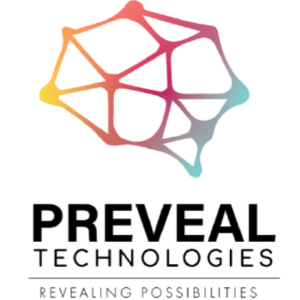 Robert Hager, Preveal Technologies, Inc. Hassan Ghasemzadeh, ASU. The Preveal pilot project focused on developing an in-home cognitive improvement system using EEG-based neurofeedback (EEG-NFB) to monitor and enhance working memory in older adults.
Robert Hager, Preveal Technologies, Inc. Hassan Ghasemzadeh, ASU. The Preveal pilot project focused on developing an in-home cognitive improvement system using EEG-based neurofeedback (EEG-NFB) to monitor and enhance working memory in older adults. Ryan Gooch, TellUs You Care. Rebecca Spencer, UMass Amherst. This study will test Tellus’s machine learning algorithms for tracking physiological and behavioral status using data from Tellus’ radar device.
Ryan Gooch, TellUs You Care. Rebecca Spencer, UMass Amherst. This study will test Tellus’s machine learning algorithms for tracking physiological and behavioral status using data from Tellus’ radar device.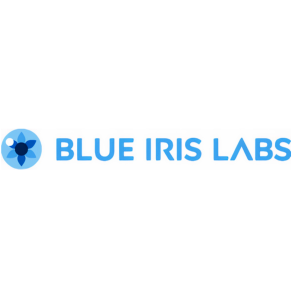 Erik Page, Blue Iris. The Blue Iris Labs pilot study investigated how personal light exposure affects sleep quality using a new wearable light sensor called the Speck.
Erik Page, Blue Iris. The Blue Iris Labs pilot study investigated how personal light exposure affects sleep quality using a new wearable light sensor called the Speck.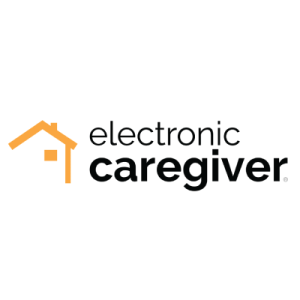 Dave Keeley, Electronic Caregiver, Inc. Michael Busa, UMass Amherst. This research project will enhance Electronic Caregiver’s Addison Care system with computer vision methods for evaluating functional strength, stability, and falls risk in older adults.
Dave Keeley, Electronic Caregiver, Inc. Michael Busa, UMass Amherst. This research project will enhance Electronic Caregiver’s Addison Care system with computer vision methods for evaluating functional strength, stability, and falls risk in older adults. Micheal Milburn and William DeJong, Impairment Science, Inc. Anuj Pradhan and Shannon Roberts, UMass Amherst. The Druid app uses multiple divided attention tasks to assess cognitive-motor behaviors related to driving. This project aims to validate the Druid app for use by older adults aged 64-85 years.
Micheal Milburn and William DeJong, Impairment Science, Inc. Anuj Pradhan and Shannon Roberts, UMass Amherst. The Druid app uses multiple divided attention tasks to assess cognitive-motor behaviors related to driving. This project aims to validate the Druid app for use by older adults aged 64-85 years. Jennifer Stamps and Kyle Rand, Rendever, Inc. This pilot study will evaluate the utility of RendeverFit™, a VR fitness platform, in terms of its acceptance by and relevance to older adults, as well as collect data to support the construction of machine learning models.
Jennifer Stamps and Kyle Rand, Rendever, Inc. This pilot study will evaluate the utility of RendeverFit™, a VR fitness platform, in terms of its acceptance by and relevance to older adults, as well as collect data to support the construction of machine learning models.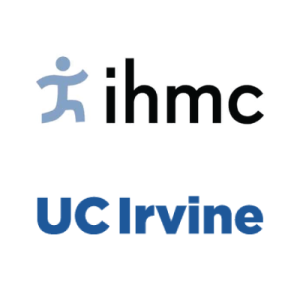 Archna Bhatia, Institute for Human & Machine Cognition, George Sperling, UCI. This project aims to develop an Intelligent Cognitive Assistant that provides real-time word retrieval support as well as personalized training to enhance word retrieval for individuals with mild cognitive impairment and Alzheimer’s Disease and Related Dementias.
Archna Bhatia, Institute for Human & Machine Cognition, George Sperling, UCI. This project aims to develop an Intelligent Cognitive Assistant that provides real-time word retrieval support as well as personalized training to enhance word retrieval for individuals with mild cognitive impairment and Alzheimer’s Disease and Related Dementias. Jennifer Williams, Stanford University. This project will develop and test an approach to monitoring older adults with chronic obstructive pulmonary disease in the home using an unobtrusive metric derived from acoustic features collected during normal cell phone use.
Jennifer Williams, Stanford University. This project will develop and test an approach to monitoring older adults with chronic obstructive pulmonary disease in the home using an unobtrusive metric derived from acoustic features collected during normal cell phone use.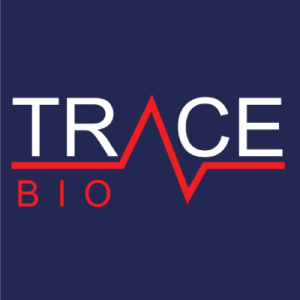 Amar Basu, Wayne State University, Michael Busa, UMass Amherst. This project will evaluate TRACE, a novel wearable sensor for monitoring orthostatic vital signs continuously at home, whenever an individual stands up.
Amar Basu, Wayne State University, Michael Busa, UMass Amherst. This project will evaluate TRACE, a novel wearable sensor for monitoring orthostatic vital signs continuously at home, whenever an individual stands up. Richard Watkins, Livindi. The Livindi pilot project aimed to develop and test a technology platform that detects distress-related events—especially falls—using audio recognition, motion sensors, and machine learning. Participants received pre-configured kits with tablets and sensors, and the system was designed to operate entirely on-device to ensure privacy.
Richard Watkins, Livindi. The Livindi pilot project aimed to develop and test a technology platform that detects distress-related events—especially falls—using audio recognition, motion sensors, and machine learning. Participants received pre-configured kits with tablets and sensors, and the system was designed to operate entirely on-device to ensure privacy.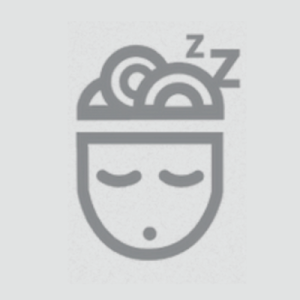 Rebecca Spencer, UMass Amherst. The pilot project aimed to validate the accuracy and usability of commercial sleep tracking devices in older adults, including those with Alzheimer’s disease (AD), related dementias (ADRD), or mild cognitive impairment (MCI).
Rebecca Spencer, UMass Amherst. The pilot project aimed to validate the accuracy and usability of commercial sleep tracking devices in older adults, including those with Alzheimer’s disease (AD), related dementias (ADRD), or mild cognitive impairment (MCI). Mark Eldaief, Massachusetts General Hospital. This project will establish a “technology-ready cohort” of individuals with Alzheimer’s Disease and related dementias to support the evaluation of digital assessments relevant to ADRD patients and their caregivers.
Mark Eldaief, Massachusetts General Hospital. This project will establish a “technology-ready cohort” of individuals with Alzheimer’s Disease and related dementias to support the evaluation of digital assessments relevant to ADRD patients and their caregivers. Quan Zhang, Massachusetts General Hospital. This project will create an adapted version of NINscan, a Near-Infrared Neuromonitoring Device, with the goal of enabling older adults and AD patients to collect high quality brain and physiological data at home.
Quan Zhang, Massachusetts General Hospital. This project will create an adapted version of NINscan, a Near-Infrared Neuromonitoring Device, with the goal of enabling older adults and AD patients to collect high quality brain and physiological data at home. Honghuang Lin, UMass Chan Medical School. This pilot project explored the use of wearable accelerometers to passively monitor walking cadence as a potential early indicator of cognitive decline in older adults.
Honghuang Lin, UMass Chan Medical School. This pilot project explored the use of wearable accelerometers to passively monitor walking cadence as a potential early indicator of cognitive decline in older adults. Joyita Dutta, UMass Amherst. This project will develop AI techniques for at-home sleep staging in seniors using multimodal data from EEG headband and smartwatch devices.
Joyita Dutta, UMass Amherst. This project will develop AI techniques for at-home sleep staging in seniors using multimodal data from EEG headband and smartwatch devices.